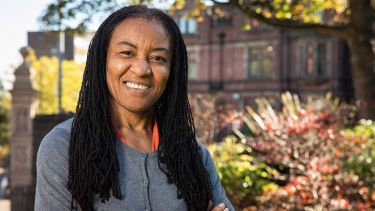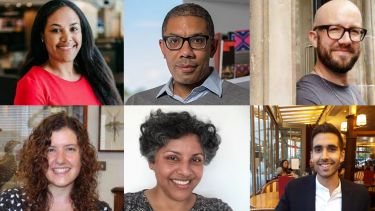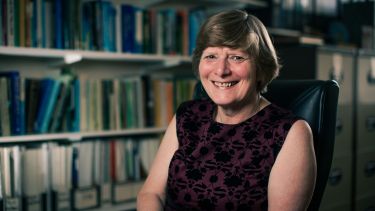Projects supporting BAME students involved in PGR study
Background
Data published by the OfS found that Black, Asian and Ethnic Minority (BAME) people are underrepresented in postgraduate research, and studies show that there has been little change in recent years.
Recent initiatives, funded by Research England and the OfS, range from targeting recruitment to increasing the number of BAME female professors, and generating new admissions practices to create longitudinal, systemic, and structural change at various English universities.
We are proud to be part of and lead these dynamic projects that will change the postgraduate research student experience at universities. Read on to learn more about the work we are doing to improve the experiences of postgraduate students.
Project: Generation Delta
Generation Delta project, a four-year project led by the University of Leeds alongside five partner universities (including the University of Sheffield) aimed to tackle the persistent inequalities that create barriers for BAME students accessing and participating in postgraduate research.
Generation Delta delivered an active intervention to improve the practical experiences and outcomes for BAME female students through three key phases of the postgraduate research student lifecycle: Access to Academy; Retention and Progression; and Training for Careers.
Almost 500 women, including students from Sheffield, have taken part in the programme, which was led by six female professors, all members of the Black Female Professors Forum, including Professor Amaka Offiah from the University of Sheffield.
The programme formally concluded in January 2026 with the final workshop and conference held in September 2025.
Legacy materials and training resources were created in a determined effort to continue to provide support and to realise Generation Delta’s vision to lay the foundations for a long-term increase in the number of racially minoritised women gaining professorships in higher education institutions in England.
This project was unique amongst those funded by the Office for Students and Research England, in that it focussed on BAME females, the smallest group of professors in UK higher education.
Led by a team of BAME female professors, this was an important and exciting opportunity to understand and break down the barriers to successful careers in academia that this group faces.
Through this project, our hope was to encourage and mentor BAME female students at every stage of their academic careers, with a view to redressing the current imbalance at the very top.
Professor Amaka Offiah
Chair in Paediatric Musculoskeletal Imaging, University of Sheffield
Students from the University of Sheffield who participated in the programme reflected on how welcoming the workshops were and how they created a space for peers to come together and discuss the challenges they were facing. Students also shared how influential the guest speakers had been and the valuable advice and guidance they had shared through their talks.
When asked what advice they would share with others who were thinking about joining similar programmes, our students told us that they'd encourage everyone considering getting involved to do so, as participating in Generation Delta had a huge positive impact on them and changed their lives and outlook.
Other projects supporting BAME PGR students
- Project: University of Sheffield Centre for Equity and Inclusion
Aims
The Centre for Equity and Inclusion aimed to enhance the university experience for BAME postgraduate students through a wide-ranging programme of professional development, reflective and creative practice, and collaborative projects with local organisations invested in racial and social justice.
This three-year project established an expert network of postgraduate research students, University of Sheffield academics, and local partners, and will develop a resilient and sustainable network capable of creating significant systemic and cultural change within higher education.
The aim was to build a more equitable and justice-focused culture in the institution, in order to create space for a more inclusive community that recognizes the contributions of students, academics, and community partners from all racial and ethnic backgrounds.
Professor Aarti Iyer
Co-Director of the Centre for Equity & Inclusion and Professor of Social Psychology, University of Sheffield.
Project leads
The Centre was led by University of Sheffield academic staff and a project manager:
- Dr Nadena Doharty, School of Education
- Dr Nicola Hemmings, School of Biosciences
- Dr Antony Williams, School of Education
- Professor Aarti Iyer, Department of Psychology
- Dr Seth Mehl, Digital Humanities, Humanities Research Institute
- Dr Alex Mason, Faculty of Arts and Humanities, Project Manager
- Project: Yorkshire Consortium for Equity in Doctoral Education (YCEDE)
Aims
The Yorkshire Consortium for Equity in Doctoral Education (YCEDE) was a four year project that aimed to tackle ethnic inequalities in accessing postgraduate research through innovations that reshape institutional policies and procedures.
Led by the University of York, this work supported BAME candidates to apply for postgraduate research programmes and work to enhance their on-course experiences and provide bespoke mentoring and training to build a strong community of staff and PGRs with the knowledge, confidence and leadership skills to succeed in their future careers.
A diversity of experiences and perspectives is critical to understanding our world and tackling the major societal challenges we face, nationally and globally.
These projects enable us to further our commitment to a diverse and inclusive PGR community and help to maximise the impact of the excellent research our PGRs undertake now and in the future. By working with our partners and local communities, we catalyse change in the recruitment and support of BAME students across Yorkshire and nurture the next generation of BAME research leaders.
Professor Lorraine Maltby
Deputy Vice-President for Research, University of Sheffield
Universities in consortium
- Kate Arnold, Paul Wakeling and Avtar Matharu, University of York
- Pippa Chapman and Louise Banahene, University of Leeds
- Esther Allen, Charlotte Burns and Lorraine Maltby, University of Sheffield
- Lucy Clague and Colin McCaig, Sheffield Hallam University
- Udy Archibong, University of Bradford
Language disclaimer
Language can influence how we perceive and categorise reality. Throughout our work, we use the acronym BAME to stand for people from Black, Asian, and minority ethnic groups within the UK. We are aware of the profound limitations of this term as it groups together a wide range of people and their various lived experiences. We aim to reach out to our stakeholders to find a more inclusive term that they recognise and is meaningful.



